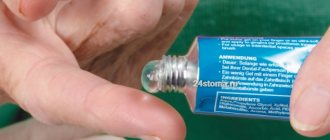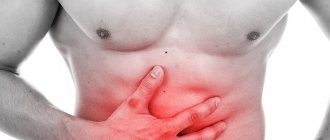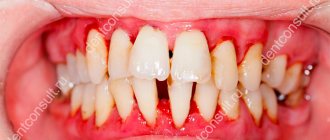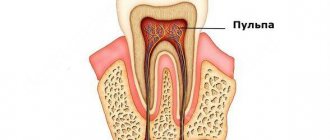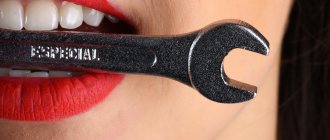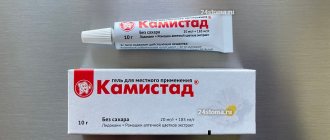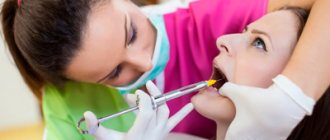15.09.2016
Author: Dentist-therapist Kuzub Yana Nikolaevna
To keep teeth healthy, both the general condition of the body, good hygiene, timely treatment, and the foods that the patient eats daily are important. Dentist-therapist at the Attribute Clinic, Yana Nikolaevna Kuzub, shares useful information about what foods and drinks are healthy, and what you should avoid to maintain a healthy smile.
WATER
Since the human body consists of more than half of water, it is logical to conclude that water is an important product for our body. Water is also good for dental health.
If you drink little water during the day (precisely water. Juices, soda, tea, coffee, soups do not count), among other negative consequences, you will experience a feeling of dry mouth. This means that not enough saliva is produced: a logical consequence of dehydration, because saliva is 98.5% water.
The composition of saliva includes mucins (no more than 0.5% of the total chemical composition of saliva). Due to them, saliva not only has viscosity and elasticity, but also prevents the formation of bacterial plaque, because blocks the proliferation of harmful microorganisms.
However, you need to know that saliva can harm your teeth if you like sweets. In this case, it will contain large amounts of glucose, as a result of which it will only harm tooth enamel.
In addition to the fact that the possibility of salivation that protects teeth depends on water, water helps to mechanically clean the oral cavity of food debris, plaque and acids harmful to tooth enamel.
Traditional methods
For inflammation of the gums, rinses, applications, and oral baths with antiseptic anti-inflammatory drugs are most often used.
- Rinse - intensive rinsing of the mouth with herbal infusions or ready-made medications. The procedure should be carried out after eating. The solution should not be too hot.
- Mouth baths are good for inflammation. Warm healing decoction must be held in the mouth for 30-60 seconds, repeated 5-7 times a day.
- Applications are indicated for advanced inflammatory processes. A gauze bandage soaked in the medicine is applied to the inflamed area of the gum for 10-20 minutes, 2-3 times a day.
Traditional methods of treatment are designed for long-term use; you should not expect healing after the first procedure.
Propolis tincture
Used for rinsing and mouth baths. Dissolve 20 drops of propolis alcohol tincture in a glass of warm water and rinse your mouth 4-5 times a day. Soak a gauze strip with an aqueous solution and apply it to the inflamed gum for several minutes.
Garlic
An excellent natural antibiotic, used for rinsing. Soak one part of garlic for 30 minutes in three parts of water, rinse the mouth with the resulting infusion three times a day.
Sea salt
Strengthens gums, has an anti-inflammatory effect, reduces bleeding, suitable for rinsing and rubbing. Dissolve 1 tablespoon of salt in a glass of water and rinse your mouth after eating. You can prepare an effective rubbing paste at home. Mix 3 tablespoons of sea salt, 2 tablespoons of crushed dried banana skins with a small amount of olive oil until a thick, homogeneous mass is obtained. Rub into gums morning and evening.
VEGETABLES, FRUITS, BERRIES, GREENS
Everyone knows that vegetables, unsweetened fruits and greens should be an important part of every person’s diet in order to maintain the balance of vitamins, minerals and other beneficial microelements in the body.
However, fresh vegetables, fruits and herbs are important for dental health, as they provide essential vitamins and minerals.
It is important to focus your diet on carrots as a source of keratin, pumpkin, which can restore white teeth due to the selenium it contains, and greens, especially spinach, which is rich in calcium.
Vegetables and greens enrich saliva with minerals that are beneficial to the health of tooth enamel (phosphate, fluoride, calcium).
It is important to understand that minerals are “leached” from teeth over time. Therefore, for the health of your teeth enamel, you must remember to eat fresh vegetables, herbs and unsweetened fruits.
Don't forget to take care of your gum health. Hard varieties of vegetables and fruits will help with this. Chewing solid food has a massage effect on the gums, thereby improving blood circulation in the mouth.
Greens will help take care of healthy oral microflora (parsley is especially good for this task), because contains antibacterial substances that can stop inflammatory processes, get rid of bad breath, and prevent caries.
Causes of gum inflammation
The causes of inflammatory processes in the gums can be very different. Their manifestations in the oral cavity can also be different. These may be ulcers on the cheeks, a red rash on the palate in adults, a taste of pus in the mouth, a bubble or blister on the gum, sores in the mouth, a sore tooth, a hole or a hard growth on the gum. Long-term inflammation of the mucous membranes can degenerate into an abscess on the gums. In this case, the wound in the mouth is most often painful and bleeds.
Any inflammatory process of the mucous membranes of the oral cavity is aggravated by the microflora of the oral cavity. Therefore, treatment of gums and strengthening of teeth is carried out using antiseptics and antibiotics.
Chief physician Salatsky Dmitry Nikolaevich
Sign up for a free consultation
+7
NUTS and SEEDS
Nuts and seeds contain substances beneficial for teeth in particularly concentrated quantities, and therefore it is extremely important to eat them regularly.
It will be good if you eat not the same type of nut always, but different varieties of seeds and nuts. Introduce walnuts and pine nuts, hazelnuts and Brazil nuts, sesame seeds, sunflower seeds, and flax into your diet. This is important because the composition of nutrients in each nut is different, and therefore the effect is different for everyone. For example, pine nuts help the development of dental bone tissue.
At the same time, remember that cracking nuts with your teeth is a procedure that is traumatic for the tooth, so it is better to avoid it. For the same reason, it is harmful to crack seeds.
What foods are harmful to teeth?
SWEET DRINKS
Sweet carbonated drinks are harmful to the body, especially to the teeth.
So-called soda and juice packages contain a lot of sugar, which not only destroys enamel, being a breeding ground for harmful bacteria, but also changes the chemical composition of saliva, saturating it with glucose, which also has an additional detrimental effect on dental health.
In addition, such drinks contain additives that can disrupt metabolic processes in the body.
Since sweets are harmful to teeth, you should not get carried away even with freshly squeezed natural juices, sweet fruits and berries. The fruit acids and glucose they contain can destroy tooth enamel.
Plain water will help prevent the negative effects of natural juice: just rinse your mouth with it.
SWEETS
Sweets can not only destroy a tooth, but also interfere with its natural restoration, because... The sugar they contain interferes with the absorption of calcium.
The only permitted sweet product can be dark chocolate, but only with a very high cocoa content. This chocolate can even prevent plaque because it contains antibacterial substances.
And if you really want to, please don’t forget to use dental floss after eating and rinse your mouth with water after eating.
DRIED FRUITS
This seemingly useful product, from the point of view of dental health, has a significant drawback - the viscosity of the product structure. This causes them to stick and get stuck in your teeth. Therefore, after eating dried fruits, you should not forget to use dental floss.
CAFFEINE
Coffee and other drinks containing caffeine dehydrate the body, interfere with absorption, and lead to vitamin and mineral deficiencies (including calcium). If you find it difficult to give up coffee, replace it with chicory.
Many people do not know that caffeine is found not only in coffee, but also in black and, especially, green tea. So if you like green tea (or black), try replacing it with herbal tea.
SIMPLE CARBOHYDRATES
And again about sugar. It is found not only in sweets and sugar. Simple sugars are part of starch, which, among other things, consists of potatoes (which is why dishes made from them are so unhealthy), and high-grade white flour.
If you find it difficult to give up flour products, switch to products that include whole grain flour.
ALCOHOL and MEDICINES
When drinking alcoholic drinks, try to dilute them with water, if possible, and then brush your teeth. In addition to the fact that alcohol contains a lot of sugar, which has a detrimental effect on enamel, it also causes dehydration, which means that the production of saliva, an important tool for protecting teeth and oral microflora, is reduced.
Just like alcohol, some medications can cause dehydration, so be sure to drink plenty of fluids while taking your medications.
Roasted nuts and seeds
Only fresh nuts and seeds, in particular, are good for the body and teeth. Fried ones, on the contrary, are harmful. And here's why: the beneficial substances contained in the fresh product are destroyed during the frying process. Moreover, harmful substances are formed in large quantities.
If you can't avoid roasted nuts or seeds, it will be less harmful to your health if you buy them fresh and only lightly roast them yourself at home.
TOP 10 products for healthy and beautiful teeth
TOP 10 products for healthy and beautiful teeth
1. Hard vegetables and fruits (carrots, apples, cucumbers, beets) Carrots, apples, cucumbers and beets contain many vitamins and microelements that are beneficial for teeth and gums, such as beta-carotene, vitamins B, D, E, K, C, PP, calcium, potassium, magnesium, sodium, phosphorus, iodine, fluorine, iron, cobalt and silver, which normalize blood circulation in the gums and supply calcium and phosphorus necessary for healthy teeth. Our teeth and gums become accustomed to soft, processed foods and stop functioning normally, resulting in plaque and poor circulation. Just a couple of hard vegetables or fruits a day - and your gums will be provided with a good massage, and your teeth will be free of deposits. In addition, such vegetables stimulate the secretion of saliva, which constantly washes the oral cavity and reduces the number of germs and bacteria.
2. Greens (parsley, lettuce, onion, dill, celery)
The composition of greens includes important not only for teeth, but also for the whole body as a whole, vitamins B, E, A, C, PP, potassium, calcium, magnesium, iodine, sodium, phosphorus, iron, beta-carotene and folic acid. Greens strengthen not only teeth, but also the immune system in general, help strengthen blood vessels, improve blood formation processes and eliminate bleeding from the gums. Parsley and onion have a natural antibacterial, refreshing and odor-eliminating effect, their juice penetrates into hard-to-reach places, whitens teeth, removes plaque, strengthens and massages gums.
3. Berries (currants, grapes, strawberries, cranberries)
The berries are rich in a unique combination of organic acids, pigments and pectins, and contain vitamins PP, A, group B, C, E, H, beta-carotene, calcium, magnesium, sodium, potassium, phosphorus, iron, iodine and fluorine. The juice of some berries is recommended to be used to prevent caries. For example, cranberry juice, due to its bactericidal effect, reduces the likelihood of caries. It is believed that the components of berry juices block bacteria from accessing tooth enamel. Grapes can also be used in the prevention of caries, because it contains a whole complex of minerals and trace elements that have a beneficial effect on teeth and gums. In addition, grapes contain substances that block the activity of pathogenic microbes in the oral cavity.
4. Nuts (almonds, pine nuts, cashews)
Nuts contain all essential amino acids, polyunsaturated fatty acids, vitamins A, B, C, D, E, P, as well as potassium, calcium, magnesium, phosphorus and other mineral elements that determine their high nutritional value. In addition, cashew nuts contain a unique substance that can destroy bacteria that destroy tooth enamel. It has antibacterial, antiseptic, tonic properties, and relieves toothache. Pine nuts contain vanadium, which promotes the development of bone tissue, phosphorus, which is involved in the formation and preservation of teeth and bones and plays an important role in the activity of muscles and nerve cells, calcium, which is the main component of bones and teeth and is necessary for blood clotting, cell integrity and cardiac activity. Almonds contain substances that improve the condition of teeth and gums; in addition, they have analgesic and antispasmodic effects.
5.Dairy products (cheese, cottage cheese, yogurt)
In addition to calcium, potassium, magnesium and vitamins A, B and D, which are beneficial for our body as a whole, dairy products also have a certain effect on teeth. Thus, yogurt reduces the amount of hydrogen sulfide, which is the main factor causing bad breath, quickly raises the pH level, and phosphates, calcium and casein help mineralize teeth. Cheese can be considered an effective means of preventing caries, because it increases the concentration of calcium in tooth enamel by 60% and increases the volume of saliva, which contains components that prevent the development of caries and gum inflammation. Cottage cheese contains proteins, lactic acid, iron and magnesium. It is well absorbed by the body, and the calcium and phosphorus salts that make up it are involved in the formation of bone tissue, nutrition of the nervous system and the formation of hemoglobin in the blood.
6. Citrus fruits (grapefruit, lime, orange) Citrus fruits necessarily include potassium, calcium, magnesium, sodium, phosphorus, iron, vitamins B, E, C, PP, which are so necessary for the body. Citrus aromas not only tone you up, lift your spirits, reduce drowsiness and increase attention and productivity, but also have a beneficial effect on teeth and gums. For example, eating grapefruit daily reduces bleeding gums and reduces the risk of inflammatory diseases of the oral cavity, and gum disease is the main cause of tooth loss. It is also recommended to eat lime, which helps prevent tooth decay and contains many substances beneficial for teeth and gums. Calcium and phosphorus contained in lime help enamel resist pathogens and caries, and gums improve the functioning of blood vessels and prevent bleeding. At the same time, lime contains organic acids, which, while having a slight whitening effect, do not corrode the enamel and do not destroy the natural microflora of the teeth and oral cavity. Contained in huge quantities of vitamin C in oranges, it maintains a healthy collagen network in the gums, which prevents the development of many dental ailments by destroying bacteria that cause tooth decay and gum inflammation.
7. Seafood (fish, shrimp)
From a nutritional point of view, seafood is considered an almost ideal food, because it is rich in microelements and vitamins, primarily calcium, phosphorus, fluorine, vitamins B1 and D, the insufficient presence of which leads to fragility of bone tissue, diseases of teeth and gums. These elements strengthen the health of the gums and promote the proper formation of teeth, improve complexion and hair health, and help the body strengthen the immune system. Shrimp contains calcium, thiamine, riboflavin, sodium, potassium, magnesium, phosphorus, iron and manganese that are easily absorbed by the body. The high content of calcium and fluoride affects the prevention of diseases of teeth and gums, because these minerals serve as a source for the construction of bones, the growth and preservation of teeth, the prevention of plaque formation and enamel destruction. Almost every type of fish is rich in calcium, selenium and fluorine, but the most valued is sea fish and other seafood, which, due to their high content of iodine and calcium, provide anti-caries protection for teeth.
8. Eggs (chicken, quail) A chicken egg contains proteins, fats, carbohydrates, 12 essential vitamins and almost all microelements. The vitamin D it contains is a source of phosphorus and helps prevent tooth decay, and eggshells are an ideal source of calcium, which is easily absorbed by the body, while medications such as calcium chloride, gypsum and chalk are poorly absorbed. By consuming crushed quail egg shells, you can get rid of bleeding gums and make your teeth strong and healthy.
9. Honey
Everyone knows that honey is good for health; it is not only a powerful source of energy and a means of boosting immunity, but also has a positive effect on dental health. Honey is especially rich in vitamins B and C, honey has antibacterial properties, has a general strengthening and rejuvenating effect on the body, and chewing wax honeycombs helps clean teeth and disinfect the oral cavity, effectively treats stomatitis and inflammation of mucous tissues. Propolis is used to treat periodontal disease, dental caries and gum inflammation; according to scientists, it reduces the number of enzymes that help bacteria attach to the tooth surface. In addition, about a hundred elements have been found in propolis that provide dental protection.
10. Drinks (tea, water) Both black and green tea are very beneficial for teeth, due to the content of substances that stop the development of bacteria. The antioxidant catechin, which is part of the tea, kills bacteria that cause caries and bad breath, which means that by drinking a cup of tea after a meal, we freshen our breath and cleanse the oral cavity of bacteria, thereby protecting the gums and strengthening the teeth. Clean drinking water enriched with fluoride also has a positive effect on dental health. Fluoridated water strengthens tooth enamel and prevents the occurrence of caries, inhibits the formation and accumulation of soft plaque, suppresses the vital activity of microorganisms, which leads to a decrease in the accumulation of organic acids in the oral cavity. All these products will have a positive effect not only on your teeth, but also on the entire body as a whole. By consuming them daily, you saturate your body with vitamins and minerals that are good for your health. When your teeth and gums become strong and healthy, you will want to smile more often, which means a good mood and smiles in return are guaranteed!
